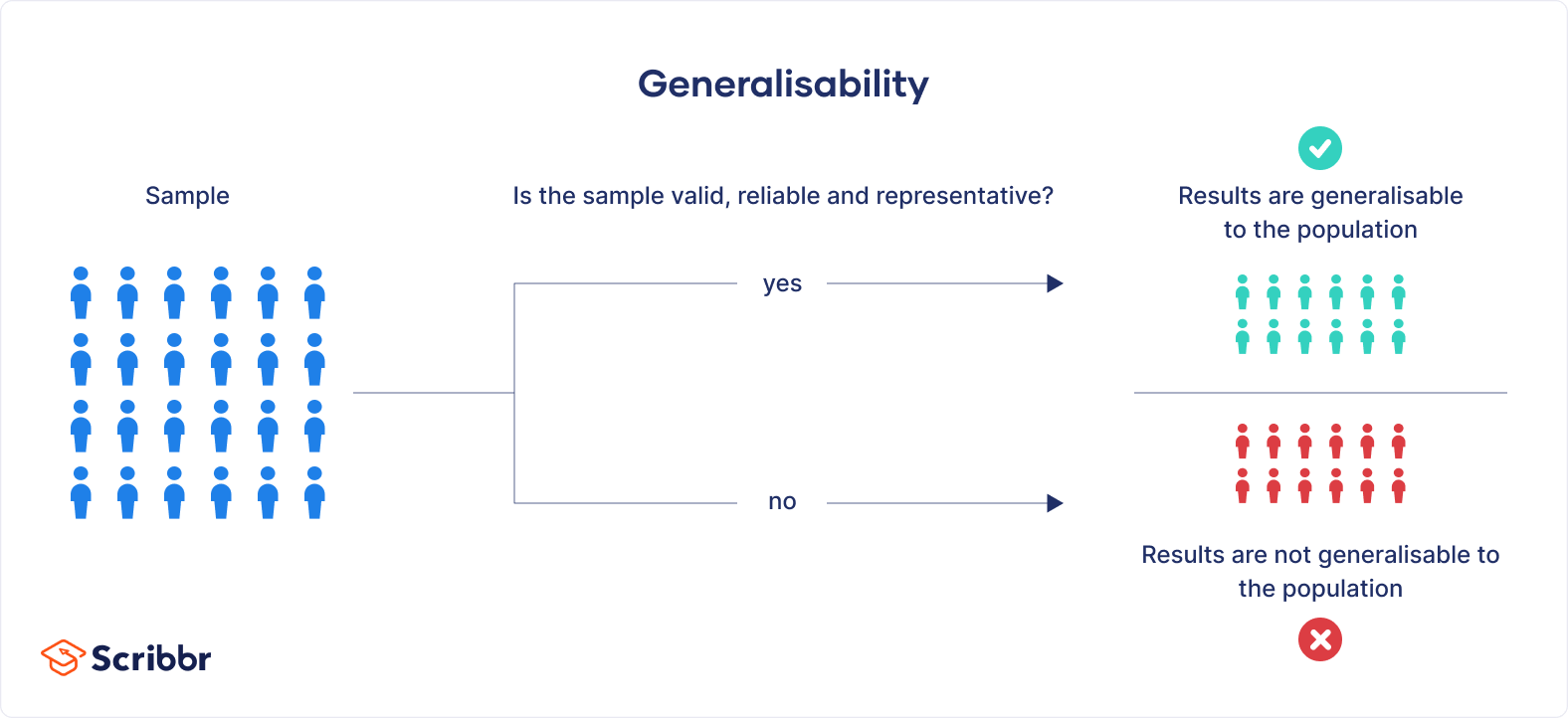
Published on 10 October 2022 by Kassiani Nikolopoulou. Revised on 3 March 2023.
Generalisability is the degree to which you can apply the results of your study to a broader context. Research results are considered generalisable when the findings can be applied to most contexts, most people, most of the time.

Generalisability is one of the three criteria (along with validity and reliability) that researchers use to assess the quality of both quantitative and qualitative research. However, depending on the type of research, generalisability is interpreted and evaluated differently.
Generalisability is crucial for establishing the validity and reliability of your study. In most cases, a lack of generalisability significantly narrows down the scope of your research—i.e., to whom the results can be applied.
Example: Narrowed scope You are researching the voting intentions of a small town of 3,000 residents. Due to limited time and resources, you plan to take a sample of 100 people.
Luckily, you have access to an anonymised list of all residents. This allows you to establish a sampling frame and proceed with simple random sampling. With the help of an online random number generator, you draw a simple random sample.
After obtaining your results (and prior to drawing any conclusions) you need to consider the generalisability of your results. Using an online sample calculator, you see that the ideal sample size is 341. With a sample of 341, you could be confident that your results are generalisable, but a sample of 100 is too small to be generalisable.
This limitation of your research should be mentioned in your discussion section.
However, research results that cannot be generalised can still have value. It all depends on your research objectives.
Example: Non-generalisable research Suppose you are conducting a study among visitors of the Getty Museum. You are particularly interested in how families with young children engage with a new interactive exhibit. Your goal is to advise the Getty Museum on future exhibitions geared towards families.
You go to the museum for three consecutive Sundays to make observations.
Your observations yield valuable insights for the Getty Museum, and perhaps even for other museums with similar educational offerings.
However, you can’t claim that your findings represent all the families that visit museums in the country, or even in your city. As you collected a convenience sample, your study results are not generalisable. Nevertheless, in this case, that was not the goal of your research. Your results can still be considered valid for the context in which they were studied.
There are two broad types of generalisability:
Statistical generalisability is critical for quantitative research. The goal of quantitative research is to develop general knowledge that applies to all the units of a population while studying only a subset of these units (sample). Statistical generalisation is achieved when you study a sample that accurately mirrors characteristics of the population. The sample needs to be sufficiently large and unbiased.
In qualitative research, statistical generalisability is not relevant. This is because qualitative research is primarily concerned with obtaining insights on some aspect of human experience, rather than data with solid statistical basis. By studying individual cases, researchers will try to get results that they can extend to similar cases. This is known as theoretical generalisability or transferability.
In order to apply your findings on a larger scale, you should take the following steps to ensure your research has sufficient generalisability.
After completing your research, take a moment to reflect on the generalisability of your findings. What didn’t go as planned and could impact your generalisability? For example, selection biases such as non-response bias can affect your results. Explain how generalisable your results are, as well as possible limitations, in the discussion section of your research paper.